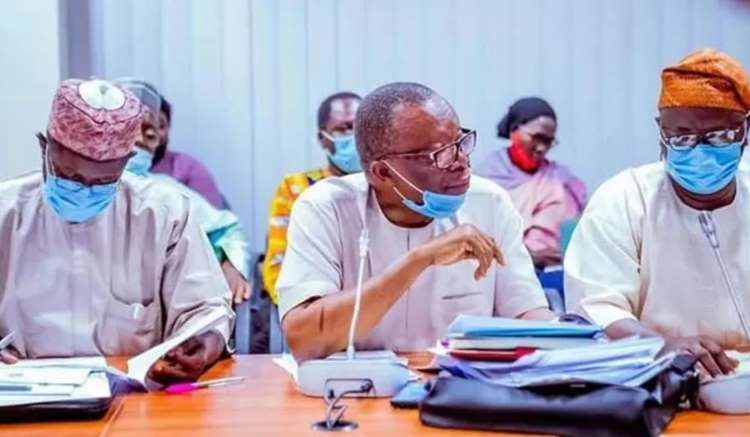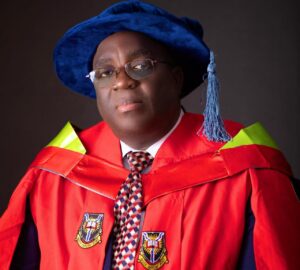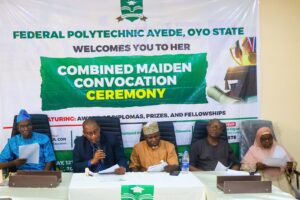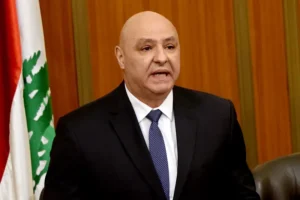
Amid industrial action that has paralysed academic activities in the Nigerian universities, the Academic Staff Union of Universities (ASUU) has said it would not call off its strike until the salary arrears of its members were paid.
The university lecturers also said they would not teach students to make up for the six months they had been on strike if the Federal Government failed to pay for the “period of strike.”
The union’s national president, Prof Emmanuel Osodeke, disclosed this to “The Punch” in response to a statement by the Minister of Education, Adamu Adamu, that the Federal Government would not concede to ASUU’s demands for the backlog of salaries withheld within the period.
ASUU embarked on a one-month warning strike on February 14.
However, the union has extended the strike several times in the past six months.
Other associations such as the Senior Staff Association of Nigerian Universities, Non-Academic Staff Union of Allied and Educational Institutions and National Association of Academic Technologists later followed suit, shutting down public universities nationwide.
Adamu had told State House correspondents on Thursday that the government would not pay the lecturers for the period of strike.
But reacting to the government’s position, Osodeke said, “He is joking. If they fail to pay, we will not teach those students; we won’t make up for that period. We will start a new session (2022/2023). We won’t conduct examinations; we will start a fresh session totally.
“Lecturers are not doctors that once life is gone, it can’t be brought back. For lecturers, we can still resume where we stopped and still teach them and make up for lost time. But for us, if they fail to pay, we won’t make up for the lost time. We won’t go back to fill backlogs; the schools will start a new session, 2022/2023. Examinations and the period lost won’t be taught.”
He added, ‘’If they want to do ‘no work no pay,’ we will also do ‘no pay no work.’ If they won’t pay the backlog, we won’t teach the backlog. We are not like other workers. He doesn’t know what he is saying.”
Explaining why the meeting with the government had been unable to resolve the lingering strike in a statement on Thursday, Osodeke explained that the government’s offer was poor.
He disclosed that the union told the FG through the ministry of education to return to the New Draft Agreement of the 2009 FGN/ASUU Renegotiation Committee whose work spanned a total of five and half years as a demonstration of good faith.
Last Tuesday, ASUU met with the government through the Prof. Nimi Briggs committee.
The statement titled, ‘Why ASUU rejects government’s award of salary’, read, “The major reason given by the Federal Government for the miserly offer-paucity of revenue, is not tenable.
“This is because of several reasons, chief of which is poor management of the economy. This has given rise to leakages in the revenue of governments at all levels. There is wasteful spending, misappropriation of funds and outright stealing of our collective patrimony.
“ASUU believes that if the leakages in the management of the country’s resources are stopped, there will be more than enough to meet the nation’s revenue and expenditure targets without borrowing and plunging the country into a debt crisis as is the case now.”
Osodeke in the statement explained that the government imposed the ongoing strike action on ASUU, saying the FG encouraged it to linger because of its provocative indifference.
The union further said, “The Munzali Jibril-led renegotiation committee submitted the first Draft Agreement in May 2021, but the government’s official response did not come until about one year later! Again, awards presented by the Nimi Briggs-led Team came across in a manner of take-it-or-leave-it on a sheet of paper. No serious country in the world treats their scholars this way.”
It stressed that the government’s surreptitious move to set aside the principle of collective bargaining, which was globally in practice, had the potential of damaging lecturers’ psyche and destroying their commitment to the university system.
According to ASUU, rejecting a salary package arrived at through collective bargaining is a repudiation of the government’s pronouncements on reversing brain drain.
However, speaking to journalists at the 47th session of the State House Ministerial Media Briefing organized by the Presidential Communications Team at the Presidential Villa, Abuja, the education minister said ASUU’s demands to be paid salaries for the six-month strike period is stalling its negotiations with the union.
Adamu assured that five of the striking university-based unions will return to work within the next one week, whereas ASUU’s remain uncertain.
He denied receiving a two-week ultimatum from the President, adding that he successfully concluded his work one week after meeting with him on July 18.







